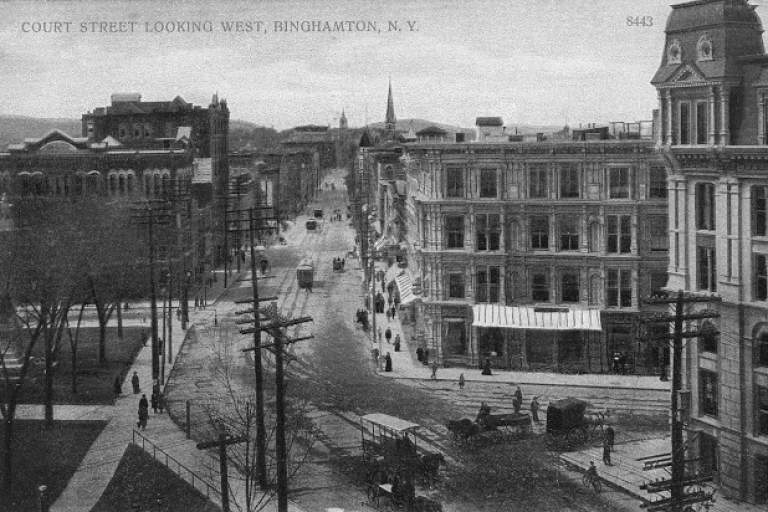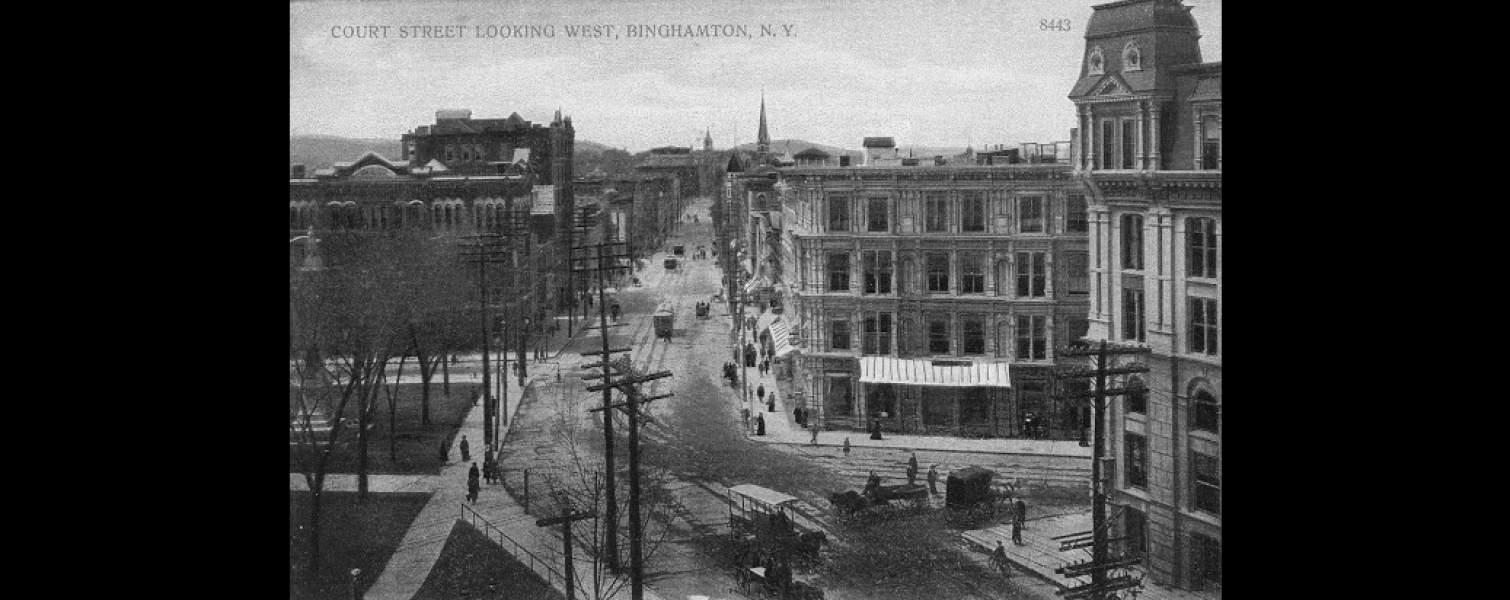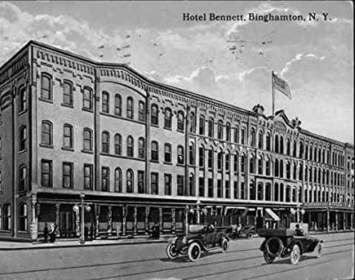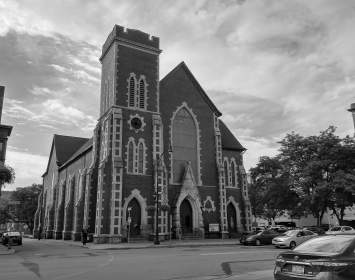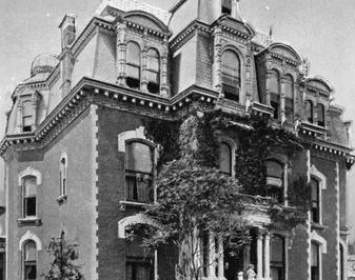Binghamton, New York (pop. 43,601 per 2020 Census), is situated at the confluence of the Susquehanna and Chenango Rivers. It is the seat of Broome County. It is named for William Bingham, a wealthy Philadelphia politician who bought the patent for a 10,000-acre parcel of land in 1786. Completion of the Chenango Canal (in 1837) fueled early growth as a manufacturing center; with the arrival of the Erie Railroad and the Delaware, Lackawanna, and Western Railroad in the mid-1800s, it became a major rail center also. Binghamton incorporated as a city in 1867. The city gained fame as a maker of cigars (in the 1880s), shoes (in the 1920s), and advanced technology (after World War II). The area became a defense contracting hub but suffered significant contraction after the end of the Cold War. Today the economy focuses on healthcare and education, especially Binghamton University (formerly SUNY Binghamton).
On October 14–17, 1913, Binghamton hosted the forty-fifth annual convention of the New York State Woman Suffrage Association.
On October 7, 2017, New York's suffrage centenary was celebrated with a reenactment of the 1913 parade and convention. One year later, on October 6, 2018, a more modest reenactment preceded the dedication of a historical marker funded by the William G. Pomeroy Foundation.
Thanks to Roger Luther for historical research.
